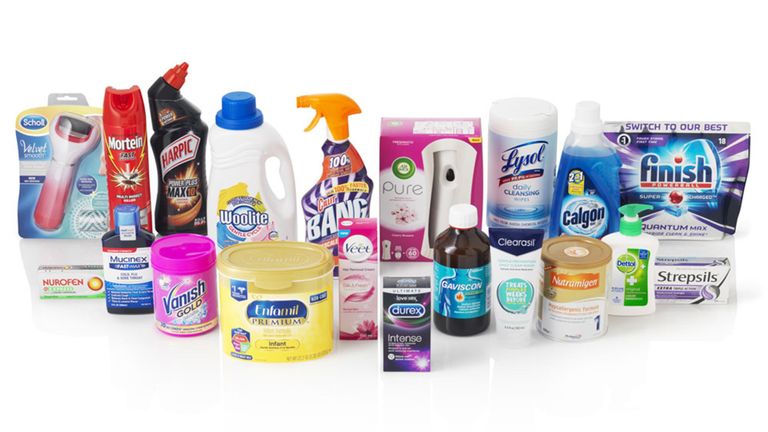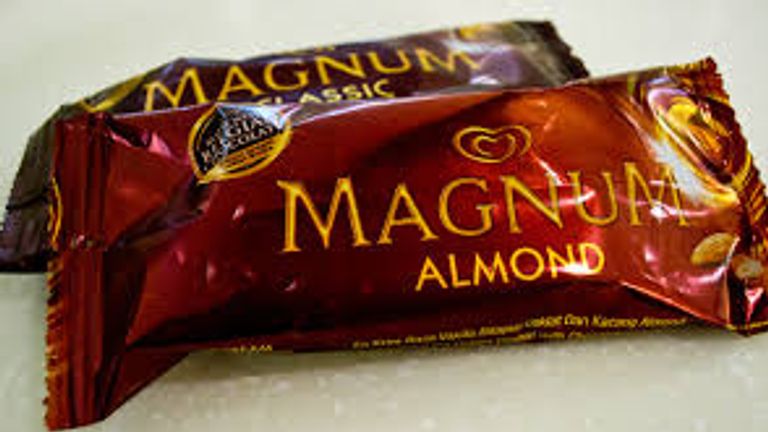The notion that, occasionally, you must do some heavy pruning to encourage growth is known to gardeners everywhere.
Management consultants and company executives know it by a different name – ‘shrink to grow’.
It holds that a business may have underperforming operations that are dragging on its overall performance and that, by pruning them, you will encourage growth from the new base.
Money latest: Fans fume at ‘disgusting’ prices to see star of the moment
The latest to put this to the test is the household goods giant Reckitt Benckiser, owner of consumer health and hygiene brands including Strepsils, Gaviscon, Nurofen, Lysol, Dettol, Harpic, Finish, Vanish and Durex.
It announced on Wednesday a major overhaul that will see it offload its home care brands – including Air Wick, Europe’s biggest air care brand; Calgon, Europe’s biggest water softener brand and Cillit Bang, Europe’s fourth biggest surface cleaning brand.
Also going – although not mentioned in the stock exchange announcement – will be the polish brand Mr Sheen, beloved in the UK for its adverts featuring a cartoon biplane pilot voiced by Willie Rushton, the late actor and comedian.
Reckitt said that, together, the brands enjoyed sales of £1.9bn.
Kris Licht, Reckitt’s newish chief executive, said the brands were “iconic” but were now considered non-core.
Mr Licht, who became CEO in October last year, also announced plans to offload what remains of Mead Johnson, its infant nutrition business and owner of brands including Enfamil and Nutramigen, which it bought for $16.6bn in 2017 and one of the most disastrous acquisitions ever made by a UK company.
He said this was now non-core and that Reckitt would consider all options for it.
He also announced a major restructuring of the business that, effectively, unwinds a move made in 2017 when Reckitt reorganised itself into two divisions – Health and Hygiene & Home.
With the home brands now up for sale or demerger, the remaining hygiene business will be folded back into the health operation to strip out management layers and duplication of roles and create what Mr Licht said would be a “uniquely attractive consumer health and hygiene business”.
The unified operation will instead be managed along three separate geographic regions – North America, Europe and Emerging Markets.
Make no mistake, this is radical surgery.
The Reckitt that emerges from this shake-up will initially be smaller once Mead Johnson and the home care brands have been sold or spun off – as they currently make up around a quarter of the company.
But Mr Licht believes the new Reckitt, having retained only its strongest-selling and biggest brands, will be able to invest more in them in future.
He said brands such as Strepsils and Gaviscon were, at present, “local heroes” with the potential to be rolled out to other markets around the world.
Mr Licht added: “This is an ambitious plan with many moving parts. There are many organisations that have been through large programmes like this and have done it well.”
This is true and especially in the so-called FMCG – fast-moving consumer goods – space in which Reckitt competes.
Diageo, the world’s biggest spirits company, is a past master at offloading sub-scale and under-performing brands even when some of them, like Bushmills, have enjoyed what looked on the face of it to be strong market positions.
Unilever, the UK’s fourth biggest company, has also achieved similar spin-offs such as the £6bn sale in 2019 of its spreads business which included brands such as Flora and I Can’t Believe It’s Not Butter.
More recently, it has announced plans to spin off its ice cream business, which includes the Ben & Jerry’s, Magnum and Cornetto brands, by next year.
But this surgery may not necessarily revive the patient and is not without risks.
The old Cadbury Schweppes, for example, bowed to shareholder pressure in 2008 when it demerged its drinks division – Dr Pepper Snapple – to become a focused confectionery business. This made it a takeover target and, less than two years later, it had succumbed to an £11.5bn bid by the US food group Kraft.
It remains one of the most controversial deals ever seen in the UK and, in part, informed a shake-up of the rules governing foreign takeovers of UK businesses. That said, with a stock market valuation of £31bn after today’s initially positive share price reaction, Reckitt would be a big business for a bidder to digest.
There may also be concern in some quarters that the disposals will leave Reckitt exposed to a lack of scale in some categories.
Mr Licht refutes that, arguing that Mead Johnson and the core home brands are, more or less, stand-alone businesses and that there will be scale achieved by reuniting health and hygiene.
He told analysts today: “We are at scale in our big geographies and we will remain at scale. We’re actually going to gain operational scale from this strategy in Europe.”
A third concern is that the new Reckitt may be slightly over-exposed to the so-called ‘over the counter’ (OTC) products like Stepsils and Mucinex whose sales can vary according to how ‘strong’ a cold and flu season is being experienced.
The argument against that is that, increasingly, OTC products are increasingly being bought by consumers in the way they buy traditional FMCG products – with the strength of the brand ensuring they remain loyal.
Perhaps the biggest concern is how easily Reckitt will be able to dispose of what remains of Mead Johnson, whose Chinese arm was offloaded in 2021 for $2.2bn.
Reckitt was ordered to pay $60m in compensation in March this year to the mother of a premature baby that had been fed the Enfamil Premature 24 product. The company is appealing against the decision but any threat of US litigation is likely to hang over the business.
And, in the meantime, trading remains tough.
Reckitt today cut its full year sales forecast after a tornado hit a Mead Johnson warehouse in Indiana a week ago while sales for the quarter just ended also came in just shy of expectations.
The short term results, though, are probably not the main thing on which to focus today.
This massive company, which dates back to Isaac Reckitt’s purchase of a starch business in Hull in 1840, is ringing the changes in a big way.


